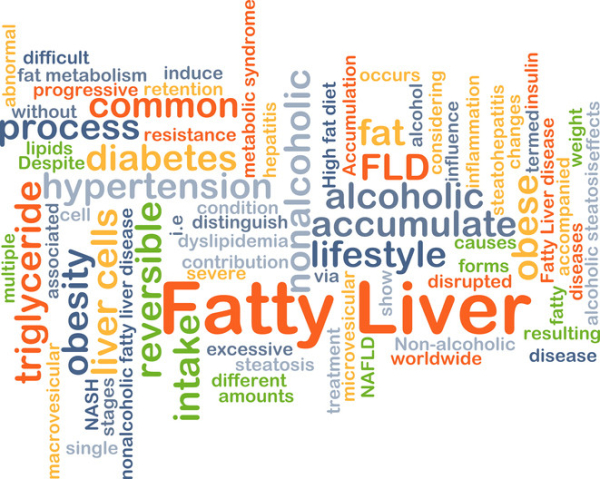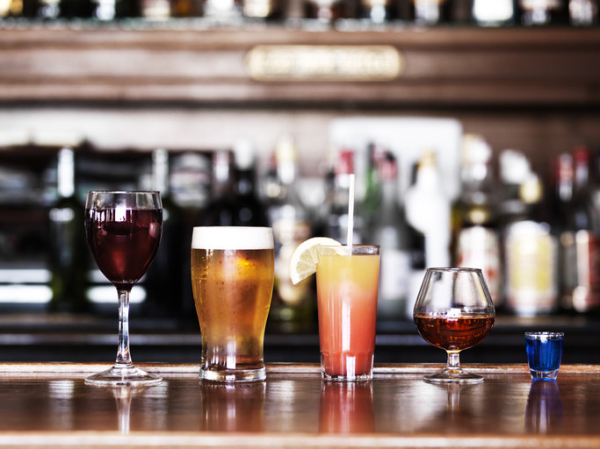 In today’s fast-paced world, our waking hours are filled with decisions — often surrounding what to eat. After a long day, dinner could well be fast food or takeout. While you may worry about the toll food choices take on your waistline or blood pressure, as a liver specialist, I also want to put fatty liver disease on your radar.
In today’s fast-paced world, our waking hours are filled with decisions — often surrounding what to eat. After a long day, dinner could well be fast food or takeout. While you may worry about the toll food choices take on your waistline or blood pressure, as a liver specialist, I also want to put fatty liver disease on your radar.
One variant, officially called nonalcoholic fatty liver disease (NAFLD), now affects one in four adults globally. Sometimes it progresses to extensive scarring known as cirrhosis, liver failure, and higher risk for liver cancer. The good news? Fatty liver disease can be prevented or reversed.
What is fatty liver disease?
Fatty liver disease is a condition caused by irritation to the liver. Liver tissue accumulates abnormal amounts of fat in response to that injury. Viral hepatitis, certain medicines (like tamoxifen or steroids, for example), or ingesting too much alcohol can all cause fatty liver disease.
However, NAFLD has a different trigger for fat deposits in the liver: a group of metabolic risk factors. NAFLD is most common in people who have high blood pressure, high cholesterol, insulin resistance (prediabetes), or type 2 diabetes. It is also common among people who are overweight or obese, though it is possible to develop NAFLD even if your body mass index (BMI) is normal.
What helps prevent or reverse NAFLD?
Diet can play a huge role. Because NAFLD is so closely tied to metabolic health, eating more healthfully can help prevent or possibly even reverse it. A good example of a healthful eating pattern is the Mediterranean diet.
Overweight or obesity is a common cause of NAFLD. A weight loss program that includes activity and healthy eating can help control blood pressure, cholesterol, and blood sugar. Among the many healthful diet plans that help are the DASH diet and the Mediterranean diet. Talk to your doctor or a nutritionist if you need help choosing a plan.
To vigorously study any diet as a treatment for fatty liver disease, researchers must control many factors. Currently, no strong evidence supports one particular diet over another. However, the research below highlights choices to promote a healthy liver.
Avoid fast food
A recent study in Clinical Gastroenterology and Hepatology linked regular fast-food consumption (20% or more of total daily calories) with fatty liver disease — especially in people who had type 2 diabetes or obesity. Fast foods tend to be high in saturated fats, added sugar, and other ingredients that affect metabolic health.
Steer clear of soft drinks and added sugars
Soft drinks with high-fructose corn syrup, or other sugar-sweetened beverages, lead directly to large increases in liver fat deposits, independent of the total calories consumed. Read labels closely for added sugars, including corn syrup, dextrose, honey, and agave.
Instead of sugary drinks, sip plain water. Black coffee or with a splash of cream is also a good pick; research suggests coffee has the potential to decrease liver scarring.
Avoid alcohol
Alcohol directly damages the liver, lacks nutritional value, and may affect a healthy microbiome. If you have NAFLD, it’s best to avoid any extra cause for liver injury. We simply do not know what amount of alcohol is safe for those with fatty liver disease — even social drinking may be too much.
Eat mostly whole foods
Vegetables, berries, eggs, poultry, grass-fed meats, nuts, and whole grains all qualify, but cutting out red meat may be wise. An 18-month trial enrolled 294 people with abdominal obesity and lipid imbalances such as high triglycerides. Regular activity was encouraged, and participants were randomly assigned to one of three diets: standard healthy dietary guidelines, a traditional Mediterranean diet, or a green-Mediterranean diet. (The green-Med diet nixed red and processed meats and added green tea and a dinner replacement shake rich in antioxidants called polyphenols.)
All three groups lost some weight, although the Mediterranean diet groups lost more weight and kept it off for a longer period. Both Mediterranean diet groups also showed reduced liver fat at the end of 18 months, but liver fat decreased twice as much in the green-Med group as in the traditional Mediterranean diet group.
Healthy fats are part of a healthy diet
We all need fat. Dietary fats help your body absorb vitamins and are vital in the protection of nerves and cells. Fats also help you feel satisfied and full, so you’re less likely to overeat. Low-fat foods often substitute sugars and starches, which affect blood sugar regulation in our bodies. But all fat is not created equal.
It’s clear that Mediterranean-style diets can help decrease liver fat, thus helping to prevent or possibly reverse NAFLD. These diets are high in healthful fats, such as monounsaturated fats found in olive oil and avocados and omega-3 fats found in walnuts and oily fish like salmon and sardines.
With so many choices, it’s hard to know where to start in the healthy eating journey. Let’s strive to eat whole foods in their natural state. Our livers will thank us for it.
About the Author

Kathleen Viveiros, MD, Contributor
Dr. Kathleen Viveiros is a clinical hepatologist at Brigham and Women’s Hospital who sees patients in Boston and in Foxborough and Westwood, MA. She is an instructor in medicine at Harvard Medical School. Her professional interests … See Full Bio View all posts by Kathleen Viveiros, MD



